Decoding Al-Qaedas Strategy
Columbia Studies in Terrorism and Irregular Warfare
Columbia Studies in Terrorism and Irregular Warfare
Bruce Hoffman, Series Editor
This series seeks to fill a conspicuous gap in the burgeoning literature on terrorism, guerrilla warfare, and insurgency. The series adheres to the highest standards of scholarship and discourse and publishes books that elucidate the strategy, operations, means, motivations, and effects posed by terrorist, guerrilla, and insurgent organizations and movements. It thereby provides a solid and increasingly expanding foundation of knowledge on these subjects for students, established scholars, and informed reading audiences alike.
Ami Pedahzur, The Israeli Secret Services and the Struggle Against Terrorism
Ami Pedahzur and Arie Perliger, Jewish Terrorism in Israel
Lorenzo Vidino, The New Muslim Brotherhood in the West
Erica Chenoweth and Maria J. Stephan, Why Civil Resistance Works: The Strategic Logic of Nonviolent Resistance
William C. Banks, New Battlefields/Old Laws: Critical Debates on Asymmetric Warfare
Blake W. Mobley, Terrorism and Counterintelligence: How Terrorist Groups Elude Detection
Jennifer Morrison Taw, Mission Revolution
Guido W. Steinberg, German Jihad: On the Internationalization of Islamist Terrorism
Decoding
Al-Qaedas
Strategy
The Deep Battle Against America
Michael W. S. Ryan
Columbia University Press

New York
Columbia University Press
Publishers Since 1893
New York Chichester, West Sussex
cup.columbia.edu
Copyright 2013 Columbia University Press
All rights reserved
E-ISBN 978-0-231-53327-0
Library of Congress Cataloging-in-Publication Data
Ryan, Michael W. S.
Decoding Al-Qaedas strategy ; the deep battle against America / Michael W. S. Ryan.
pages cm.(Columbia studies in terrorism and irregular warfare)
Includes bibliographical references and index.
ISBN 978-0-231-16384-2 (cloth : alk. paper)ISBN 978-0-231-53327-0 (e-book)
1. Qaida (Organization) 2. TerrorismUnited StatesPrevention. 3. TerrorismReligious aspectsIslam. 4. Jihad. I. Title
HV6432.5.Q2R93 2013
363.325dc23
2012049506
Jacket design: Fifth Letter
A Columbia University Press E-book.
CUP would be pleased to hear about your reading experience with this e-book at .
References to websites (URLs) were accurate at the time of writing. Neither the author nor Columbia University Press is responsible for URLs that may have expired or changed since the manuscript was prepared.
For Janet and Thomas
Contents
I n this book, I have used a simplified version of the U.S. Library of Congress system of transliteration. I have not distinguished between long and short vowels nor used subscripted diacritical marks. For the letter ayn, I use the diacritic () in the medial and final positions only, as in shariah and shuru. I represent the letter hamza by the diacritic () in the medial and final positions only, as in qaid and liqa. The definite article is always shown as al and never elided with the previous word. The feminine marker, ta marbuta, is represented by a final ah; the adjectival -ya followed by ta marbuta is rendered -iyyah. This system is used for proper names unless there is a variant in common use. I have generally rendered Arabic titles for books and articles according to the ordinary system used in English. For names usually pronounced according to the Cairene usage, I have occasionally substituted g for the expected j.
I owe a great deal to the support of a number of institutions and friends who made this book possible. First of all, thanks are due to the Board of the Jamestown Foundation, especially its chairman, Willem De Vogel, and president, Glen Howard, who appointed me a senior fellow and provided me an intellectual home. Glen has been an endless source for contacts and ideas. Andrew McGregor and Murad Batal al-Shishani were especially helpful colleagues; their prolific intellectual output is a source of inspiration. Murad generously shared jihadist source documents and his vast knowledge of radical groups. Andrew was a constant interlocutor and reliable source of sound advice. Jamestowns Brittny Parsells provided comments and questions on early drafts. Terah Edun was a source of excellent support of all kinds.
Special thanks go to General Michael Hayden, whose talks at Jamestown events provided the inspiration for the title and central concept of the deep battle.
I owe a debt of appreciation to Bruce Hoffman for his encouragement, substantive advice, and support for the publication of my book. Bruces wisdom influenced the path I took in my research at an early stage. I will always be grateful.
I would like to thank the staff at Columbia University Press for their making this book possible. Anne Routon, my editor at Columbia, offered authoritative advice, decisiveness, and much appreciated enthusiasm. Annes assistants Alison Alexanian and Whitney Johnson gave thoughtful and timely help throughout the process. My production editor at Columbia, Michael Haskell, and my copyeditor, Robert Fellman, provided expert comments and textual corrections.
I would like to thank the president of the Middle East Institute, Wendy Chamberlin, for granting me the privilege of being an MEI scholar. Appreciation is also owed to vice president Kate Seelye, program director Elisha Meyer, and MEIs intern coordinators, Peter White and Rachel Wilson. I am indebted to the support of my MEI research assistants: Ivy Chen, Brianna Rosen, Chelsea Devening, Jill Rhodes, Matthias Baun Brubaker Christensen, and Ramtin Amin. Adel El-Adawy, Simon Williams, and Brittany Piovasen generously read and commented on various sections of the manuscript.
Several friends gave me encouragement and support throughout this project.
Eldad Nissan provided tireless and enthusiastic identification and analysis of source documents. He monitored jihadist forums in Arabic and researched obscure details of jihadist doctrine from the beginning of this project to its conclusion. Many of the key ideas of this book were the subject of conversation and debate with Eldad.
Lawrence Marzcak read the earliest drafts on the chapters on Salafism and Abu Bakr Naji and provided questions and commentary that improved the final product.
Zafar Imran has been a constant source of insight on Islam and Pakistan. Zafar brought numerous items to my attention, including a transient Urdu website featuring a translation of Ayman al-Zawahiris attack on Pakistans constitution.
Shukri Abed generously shared his keen and deep insight into the Arabic language and culture. Shukri reviewed my translations of al-Qurashis articles, guided me on the right path, and made it a joy for me to consult with him on the most troubling terms of jihadist discourse.
I owe profound thanks to Judith Brown, who cast her discerning eye over the complete manuscript at various stages of development. Judi proofread, suggested revisions, and questioned the logic behind some of my conclusions. She also drafted the figures included as guidelines to the characters and ideas that appear in the following pages.
My wife, Janet, and son, Thomas, provided me the space, time, and encouragement to work on this project over the last several years. I could not have completed it without them.

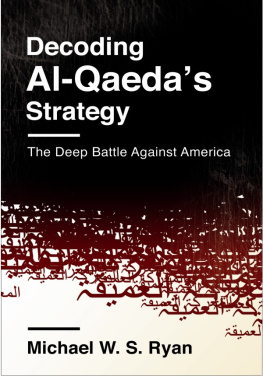
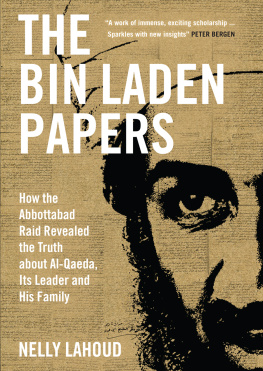
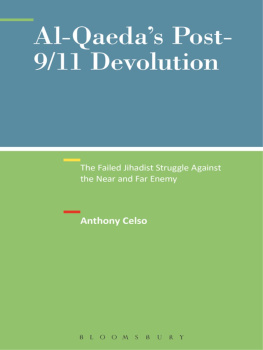
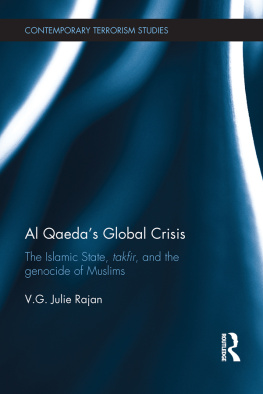
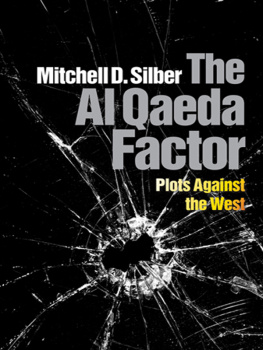
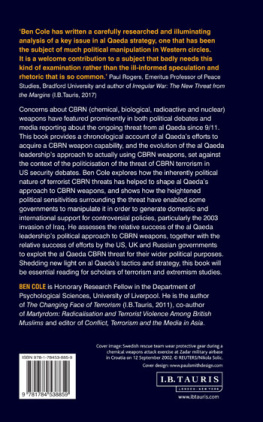
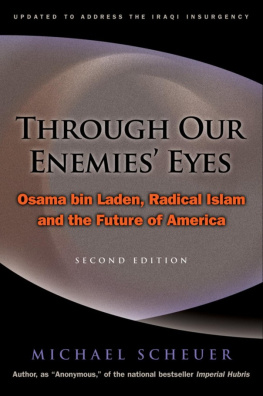
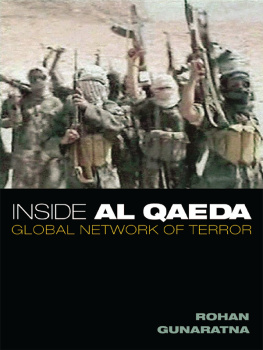
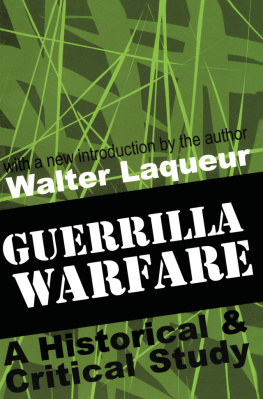
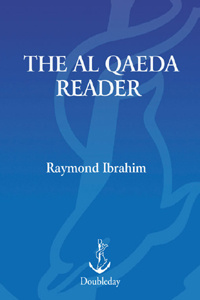

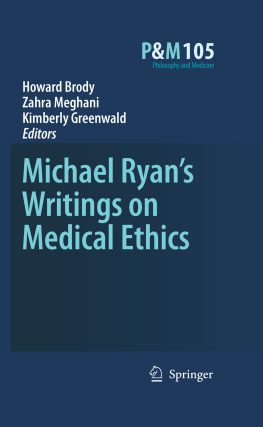
 New York
New York